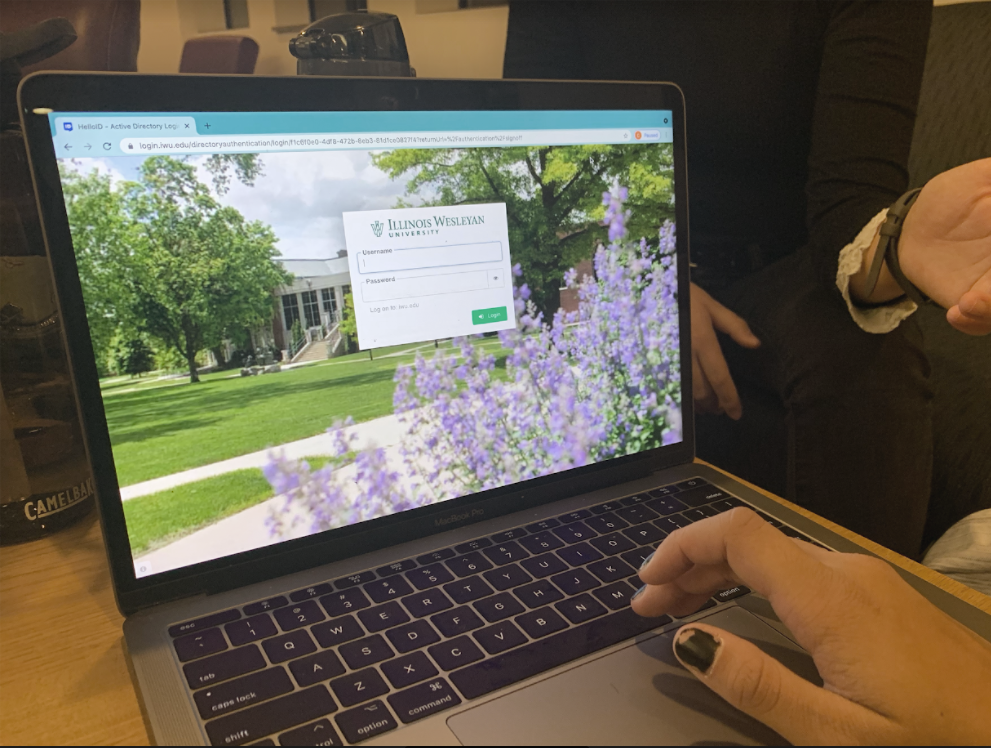
On November 1, IWU’s Information Technology Services (ITS) announced a new platform called HelloID, which is a multi-factor authentication (MFA) system. The system requires that anyone wishing to login to an account must provide another verification in order to access the account.
This process is one many of us already use, like, for instance, when we make online purchases via PayPal. Before someone is able to place the order, they have to login to PayPal and provide a code that most likely will be sent to their phone.
To explain the purpose of MFA, Lindquist asked students imagine a scenario in which they unknowingly log into a scam website. Immediately, the scammers have access to all of one’s information. The scammers could log onto one’s Banner account and change important information. Faculty and staff are not excluded from this. When scammers login to a staffs’ portal they can access and change the Direct Deposit as well as access information that pertains to students.
Additionally, websites which only have a single password as a logon requirement are susceptible to these data breaches, as seen through Facebook among many other examples. Lindquist reiterated that through MFA, this unnecessary risk of identity theft is reduced.
Even though there have not been any past breaches within IWU’s system it makes sense to avoid that before the IWU community is faced with a security issue.
“On any given day there are scam emails sent out and that happens everywhere, not just within IWU. These scam emails may also come from inactive alumni accounts,” Lindquist said.
Other types of scam emails are presented in an official way to suggest they are truly from IWU. He added that, while these particular scams seem generally nonconsequential, scammers are getting smarter and it is better to stay ahead, which MFA does.
Lindquist also believes that MFA is not the only thing that should be done to stop students or faculty from giving out their information to a source that is not legitimate.
“There needs to be an increase in education on how to identify scams. We will not just install this MFA and then think that it is enough, we want to do more,” Lindquist said.
Everyone must enroll with MFA before January 3, 2022, but Lindquist encouraged students to do so now. Lindquist hoped that as students enroll, they will become more familiar with the process and work through any little snags. Lindquist recognized that accessibility issues since MFA requires cell phones or apps, yet explained that there are still options for those without smartphones. Lindquist encouraged students in these unique situations to reach out to ITS and set up an appointment.
Lindquist reassured that this process will become routine and hoped students will approach MFA with an open mind. He also spoke on ITS’s commitment to regularly communicate with campus as it continues to learn. Next Monday, November 15th, at 12:00 p.m. ITS is hosting a HelloID tutorial through Zoom.
With this added step in protection, Lindquist also emphasized that ITS is a resource committed to providing tools for everyone on campus to succeed, not just students. ITS works with other parties to ensure that any and all ITS issues are resolved.
After a year of COVID, Lindquist highlighted the fast evolution of technology and how difficult it was for everyone to adapt to a nearly completely online world. As a result, campus today is better equipped with more laptops, cameras, and microphones.
Despite whatever future challenges may be thrown our way, Lindquist expressed ITS’s commitment to doing all in their power to help everyone in the IWU community. ITS hopes to support IWU’s mission in every way.
“IT is here and really committed to helping everyone in the community. Even if we can’t immediately resolve something we want to do everything in their power to help,” Lindquist said.
Students experiencing issues surrounding technology, may seek assistance by filling out a request form at help.iwu.edu/ or visiting the ITS help office located in Ames Library.

